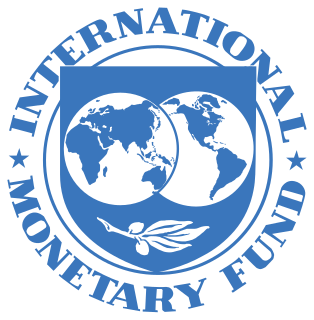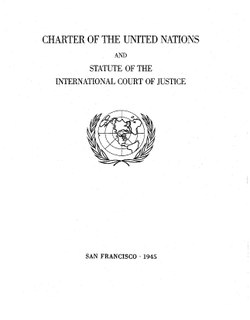 W
WThe Berne Convention for the Protection of Literary and Artistic Works, usually known as the Berne Convention, is an international agreement governing copyright, which was first accepted in Berne, Switzerland, in 1886.
 W
WThe Convention Relative to the Preservation of Fauna and Flora in their Natural State, also known as the London Convention of 1933, was an early agreement among colonial powers for the conservation of nature. As one of the first general conservation agreement in Africa, and the first to specifically protect a plant species, it has been called the Magna Carta of wildlife conservation and "the high point of institutionalised global nature protection before the Second World War".
 W
WThe Durand Line is the international 2,670-kilometre (1,660 mi) land border between Afghanistan and Pakistan in South-Central Asia. It was originally established in 1893 as the international border between British India and Emirate of Afghanistan by Mortimer Durand, a British diplomat of the Indian Civil Service, and Abdur Rahman Khan, the Afghan Emir, to fix the limit of their respective spheres of influence and improve diplomatic relations and trade.
 W
WThe Food and Agriculture Organization of the United Nations (FAO) is a specialized agency of the United Nations that leads international efforts to defeat hunger and improve nutrition and food security. Its Latin motto, fiat panis, translates to "let there be bread". It was founded in October 1945.
 W
WThe International Bank for Reconstruction and Development (IBRD) is an international financial institution, established in 1944 and headquartered in Washington, D.C., United States, that is the lending arm of World Bank Group. The IBRD offers loans to middle-income developing countries. The IBRD is the first of five member institutions that compose the World Bank Group. The initial mission of the IBRD in 1944, was to finance the reconstruction of European nations devastated by World War II. The IBRD and its concessional lending arm, the International Development Association (IDA), are collectively known as the World Bank as they share the same leadership and staff.
 W
WThe International Labour Organization (ILO) is a United Nations agency whose mandate is to advance social and economic justice through setting international labour standards. Founded in 1918 under the League of Nations, it is the first and oldest specialised agency of the UN. The ILO has 187 member states: 186 out of 193 UN member states plus the Cook Islands. It is headquartered in Geneva, Switzerland, with around 40 field offices around the world, and employs some 2,700 staff from over 150 nations, of whom 900 work in technical cooperation programmes and projects.
 W
WThe International Monetary Fund (IMF) is an international organization, headquartered in Washington, D.C., consisting of 190 countries working to foster global monetary cooperation, secure financial stability, facilitate international trade, promote high employment and sustainable economic growth, and reduce poverty around the world while periodically depending on the World Bank for its resources. Formed in 1944 at the Bretton Woods Conference primarily by the ideas of Harry Dexter White and John Maynard Keynes, it came into formal existence in 1945 with 29 member countries and the goal of reconstructing the international payment system. It now plays a central role in the management of balance of payments difficulties and international financial crises. Countries contribute funds to a pool through a quota system from which countries experiencing balance of payments problems can borrow money. As of 2016, the fund had XDR 477 billion.
 W
WThe Kellogg–Briand Pact is a 1928 international agreement in which signatory states promised not to use war to resolve "disputes or conflicts of whatever nature or of whatever origin they may be, which may arise among them". There were no mechanisms for enforcement. Parties failing to abide by this promise "should be denied of the benefits furnished by [the] treaty". It was signed by Germany, France, and the United States on 27 August 1928, and by most other states soon after. Sponsored by France and the U.S., the Pact renounced the use of war and calls for the peaceful settlement of disputes. Similar provisions were incorporated into the Charter of the United Nations and other treaties, and it became a stepping-stone to a more activist American policy. It is named after its authors, United States Secretary of State Frank B. Kellogg and French foreign minister Aristide Briand. The pact was concluded outside the League of Nations and remains in effect.
 W
WThe Treaty of Punakha was an agreement signed on 8 January 1910, at Punakha Dzong between the recently consolidated Kingdom of Bhutan and British India. The Treaty of Punakha is not a stand-alone document, but represents a modification of the Treaty of Sinchula of 1865, the prior working agreement between Bhutan and British India. As such, the Treaty of Punakha is an amendment whose text incorporates all other aspects of the Treaty of Sinchula by reference.
 W
WThe United Nations Educational, Scientific and Cultural Organization is a specialised agency of the United Nations (UN) aimed at promoting world peace and security through international cooperation in education, the sciences, and culture. It has 193 member states and 11 associate members, as well as partners in the nongovernmental, intergovernmental, and private sector. Headquartered in Paris, France, UNESCO has 53 regional field offices and 199 national commissions that facilitate its global mandate.
 W
WThe Charter of the United Nations is the foundational treaty of the United Nations, an intergovernmental organization. It establishes the purposes, governing structure, and overall framework of the UN system, including its six principal organs: the Secretariat, the General Assembly, the Security Council, the Economic and Social Council, the International Court of Justice, and the Trusteeship Council.
 W
WThe World Health Organization (WHO) is a specialized agency of the United Nations responsible for international public health. The WHO Constitution, which establishes the agency's governing structure and principles, states its main objective as "the attainment by all peoples of the highest possible level of health." It is headquartered in Geneva, Switzerland, with six semi-autonomous regional offices and 150 field offices worldwide.